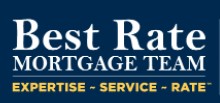Types of Mortgages
Types of Mortgages in Canada
In Canada we are able to choose from several
types of Mortgages. Depending on your
situation, there is a product to suit your needs.
OPEN MORTGAGES
An Open Mortgage will give you a lot of
flexibility when it comes to making additional large payments or paying the
mortgage off completely at any time without having to pay any penalties. However, the interest rate will be higher
than a fixed rate for the term of the mortgage.
This is the downside of an Open Mortgage, due to the flexibility they
offer homeowners.
CONVERTIBLE MORTGAGES
A Convertible Mortgage is similar to a
Closed Mortgage but offers the flexibility of changing the term of the mortgage
by extending it without having to pay a penalty to do so.
Some lenders also offer Convertible
Mortgages so that borrowers can opt to change from a fixed rate mortgage to a
variable rate mortgage, or vice versa.
Most Open Mortgages are actually a type
of Convertible Mortgages in that the borrower can move the mortgage to a closed
term by renegotiating the mortgage without penalty. Often these homeowners will choose to do this
due to volatile rise in interest rates.
HYBRID MORTGAGES
A Hybrid mortgage is simply a mix of
several different elements found in traditional mortgages, making it suitable
for those looking for a combination of the best options. These mortgages can
contain elements such as a fixed rate portion, a variable rate portion, a line
of credit portion or any other credit instruments. You will find a wide array of Hybrid
Mortgages offered through various Financial Institutions and Mortgage
Lenders. They are designed to attract
borrowers who are looking for an all-round lending product to support an
advanced financial plan or strategy. An
all-in-one type of product to cover off many different aspects of a person’s
financial needs.
CLOSED MORTGAGES
A Closed Mortgage is a common type of
mortgage in Canada right now. This type
of mortgage locks in a specific rate for the term of the mortgage. When the mortgage comes up for renewal, the
rate will be determined for the next term per the current interest rates at
that time. This type of mortgage usually
offers a lower interest rate than an open mortgage.
If you were to payoff the mortgage early
(before the end of the term), you would be assessed a prepayment penalty by the
lender. But lenders will normally offer
you the option of making one lumpsum payment each ye
ar without penalty (from
10% to 20% of the original mortgage amount depending on the lender). And many will also allow you to increase your
monthly payments as well (by 10% to 20% depending on the lender). When possible, homeowners can take advantage
of both those options. All lumpsum
payments go directly to the principal balance of the mortgage.
Closed Mortgages offer either a fixed
rate for the term (rate remains the same for the term of the mortgage) or a
variable rate (rate is subject to fluctuation of the lender’s Prime Rate during
the term of the mortgage).
REVERSE MORTGAGES
A Reverse Mortgage provides home owners
access to their equity without selling of their property. The homeowner, 55 years or older, has the
opportunity to convert the amount of equity in their home into a Reverse
Mortgage and draws funds either as a lump sum or as monthly payments, from the
Lender to the home owner (thus it is called a Reverse Mortgage).
Once the home owner no longer
owns the property or is deceased, the balance in full is due. And the proceeds of the sale of property will
be used to settle the balance owing.
